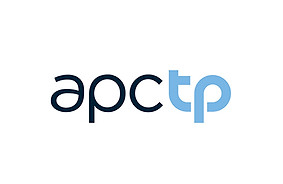top of page

APCTP Focus Program
Integrability, Duality and Related Topics
APCTP, Korea October 31 (Mon) - November 5 (Sat)

SCOPE
Integrability has played a central role in understanding non-perturbative QFTs quantitatively leading to important applications in condensed matter physics, mathematical physics and more recently, in string theory. There is considerable activity brewing at the interface of these areas. An important recent development is given by integrability-preserving deformations, which includes the TTbar deformation. This progress further expands the scope of integrability to a larger class of models. At the same time, it leads to new insights on fundamental concepts of 2d quantum field theories such as UV completeness and locality. Another promising and active approach toward nonperturbative physics is provided by duality. In particular, dualities found in the AdS/CFT correspondence and its extensions, known as holography, have provided new insights and exact results by employing exact methods such as integrability and localization. AdS/CFT integrability has inspired remarkable advances in the study of correlation functions, including single-trace operators and those involving D-brane in AdS. The techniques employed are closely connected to the study of finite-volume form factors, and of non-equilibrium dynamics in condensed matter physics. Interest in CFT correlators also connects with the conformal bootstrap program, to which integrability is poised to contribute. As an example of how this might happen, links between Calogero-Sutherland models and conformal blocks, for example, have been established. Exploring this rich web of connections, between different areas of physics and mathematical physics, is in its infancy. In this program we plan to invite a critical mass of researchers with complementary expertise from across the mathematical physics, condensed-matter physics and string theory communities, to promote common interests and collaborations, discover and open up new directions, and in particular, to develop applications to realistic physical systems.

SPEAKERS
Tarek Anous (University of Amsterdam)
Zoltan Bajnok (Wigner Research Centre for Physics)
James Bonifacio (University of Cambridge)
Hugo Camargo (GIST)
Minjae Cho (Princeton University)
Christian Ferko (UC Davis)
Matthew Heydeman (IAS)
Shinji Hirano (Huzhou University)
John Z. Imbrie (University of Virginia)
Vladmir Kazakov (LPENS, Paris)
Minkyoo Kim (Sogang University)
Andre LeClair (Cornell University)
Kyungsun Lee (GIST)
Apolo Luis (University of Amsterdam)
Max A. Metlitski (MIT)
Stefano Negro (New York University)
Balazs Pozsgay (Eötvös Loránd University)
Alessandro Sfondrini (Padova University)
Roberto Tateo (Turin University)
Deliang Zhong (Tel Aviv University)
SPONSORS

CONTACT
bottom of page